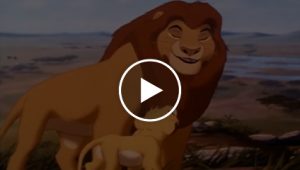Word and Deed
All things are wearisome; Man is not able to tell it. Ecclesiastes 1:8 NASB
Wearisome – Why is this book even in the Bible? It’s so pessimistic! What kind of spiritual message can be gleaned from writing that basically says nothing really matters, that death swallows up everyone, and there is really no solid evidence of anything beyond our brief and insignificant lives. Oh, you might wish you had some kind of ultimate security, but just live long enough and you’ll see it’s all a sham. Furthermore, it’s virtually impossible this was written by Solomon, and the infamous epilogue (“Revere God and follow the commandments”) was probably added to make this book at least somewhat palatable. With all this in mind, how did it get into the Bible in the first place?
“Contemporary readers . . . often express puzzlement that Ecclesiastes could have gotten into the Bible. The assumption behind this puzzlement is that the canon of Scripture arose from theological deliberation, with the Rabbis evaluating books for their doctrinal suitability. In actuality, the formation of the biblical canon appears to have been a historical development, not a deliberate one. Books that were in circulation in the Second Temple community and were believed to come from the classical period of literature, prior to Ezra and Nehemiah, gradually came to be regarded as Scripture. The belief that Solomon was the author of Ecclesiastes made its acceptance as Scripture possible. Once it was included among the sacred scriptures, exegesis found ways to make it theologically palatable.”[1]
Do you find Fox’s comment distressing or comforting? What do you think about the “Word of God” when you recognize that this particular bit of writing got into the canon because it was falsely attributed to Solomon, and theological manipulation was needed to make it fit? What this really demonstrates is that our Bible is a collection of material that past communities thought of as God’s word regardless of their content; and that later theological efforts were needed to make some of these books acceptable to later reading audiences. That raises another really important question. If Ecclesiastes became Scripture, even though it was pseudepigrapha, simply because people accepted it as God’s word, then why aren’t documents from the time after John also candidates for the title “God’s word”? In other words, why did the religious authorities close the canon?
Once you start thinking about that question, you might find Koheleth’s view of human cognition much more in line with your own experience. “All things are wearisome,” he writes. The Hebrew verb is yāgēaʿ. It doesn’t actually mean everything is exhausting. It really means, “All words are weary.” “It is not the natural phenomena but rather human words that are ‘weary,’ inadequate to communicate the immensity of the repetitions in which the world is locked.”[2] As Eliade pointed out, in the ancient world, without the Hebraic idea of a divine/human project, everything just goes round and round. In our modern world, contemporary media proclaims the same dismal message, albeit in comic relief, as if that really made any difference.
Koheleth knew the truth about a universe without God. It’s just one great big circle of meaningless repetition. Believe what you want for as long as you want, then die and be replaced by someone else who just goes on believing whatever. No wonder the rabbis had to do some serious exegetical magic to get this book to fit.
But the common folk accepted the book, I suspect, not just because someone attached Solomon’s name to it. I’m guessing that Koheleth’s wearisome words echoed their own experiences. Since Genesis 3 life has been toil, basically just to stay alive. For most of the world’s population that is exactly what life is today—staying alive. I passed by the Nigerian man who stands outside the grocery store today. I asked him if he found a job since he hadn’t been there for a few days. He replied, “If I had a job, would I be here?” Life for him is survival. There is little left over to contemplate the vastness of eternity. Koheleth is his teacher. And maybe he’s mine too. I enjoy the bubble world of sufficiency. I don’t have to stand on the corner and beg to survive. I wonder if I really could do that. Pride gets in the way of being human. Perhaps Yeshua was thinking about Ecclesiastes when he said, “Lucky the desperate; the Kingdom came because of them.”
Topical Index: wearisome, yāgēaʿ, Eliade, Ecclesiastes 1:8
[1] Michael V. Fox, The JPS Bible Commentary: Ecclesiastes (JPS, 2004), p. xv.
[2] Ibid., p. 6.
ROSANNE’S KITCHEN has a new recipe for you. CLICK HERE




